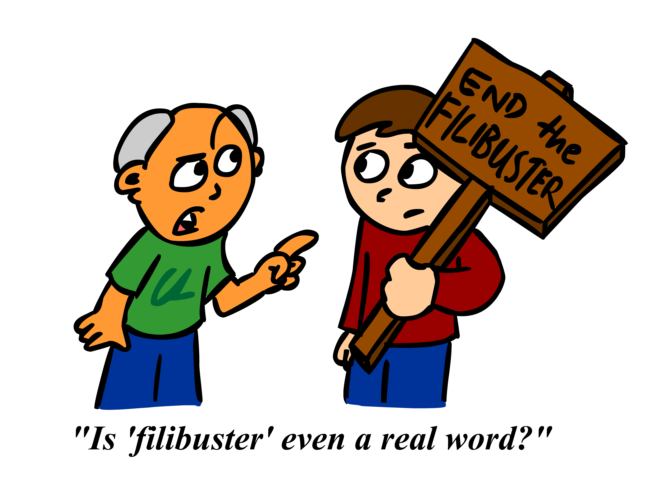To be an American means playing a role in voting for candidates that represent towns, states and the nation as a whole. A bill supporting voter rights seems like it would be a shoo-in, but the bill failed in the Senate with a 48-52 vote.
The filibuster was prioritized over The Freedom to Vote: John R. Lewis Act which would have served to universally restore the Voting Rights Act of 1965 and increase voting accessibility.
The bill would expand voter rights by requiring all states to have early voting for at least two weeks, national mail-in guidelines, accommodations for people with disabilities and election day as a legal public holiday.
Restrictive voter legislation has been on the rise since the 2020 Presidential election, where there were varying responses to same-day registration and the use of mail-in ballots.
Republican-led state legislatures wanted to overturn the 2020 election by putting in place more restrictive voting laws to create a secure voting process in the aftermath of the 2020 election.
For example, according to an article by the NPR Station in Austin, Texas, KUT Radio there is a new law that creates added steps for people who want to apply for mail-in ballots. Applicants will have to provide their driver’s license number or their social security number.
The John R. Lewis Act’s failure is just one of the many symbols of how America is straying away from the idea of being a fair and democratic nation.
When it comes to voter accessibility, those who have less access tend to be lower class and people of color, who disproportionately making up the lower class. Both Republicans and Democrats fail when it comes to addressing the needs of the lower class; however, between them both, Democrats have done the most in addressing their needs.
A part of common Democratic policies are initiatives such as raising minimum wage and universal healthcare. Therefore, it is easy to assume the way citizens in the lower class may vote.
Republicans against the policies argue that the Freedom to Vote: John R. Lewis Act has a lack of security, but at the end of the day, it is just obvious that Republicans want voters to be from a demographic more likely to vote for them.
It nearly feels reminiscent of voting before the Voting Rights Acts of 1965. In the South, polling places created obstacles that prevented African Americans from voting.
These policies did not openly say that African Americans could not vote. Instead, they utilized “colorblind” techniques such as poll taxes literacy tests, when it was obvious that African Americans at the time were mostly lower class and less likely to have access to good education.
Although the policies we now see arising in places like Texas and other Republican-led states don’t outright say, “If you are lower class and a person of color, you are not allowed to vote,” it makes it obvious that their vote is seen as less valuable.
This type of voter law has existed in America since the right to vote was established. Policies made to not seem selective or target a certain community end up doing just that.
In the late-eighteenth century, the vote was only available to rich white men by disallowing people who did not own land from voting.
It is sad to see the same gerrymandering being used in the name of security to choose whose vote is valuable.
There are also errors in how the filibuster is being used. Designed to give the Senate minority a voice, the filibuster has been weaponized to selfishly avoid and prolong the legislation process.
With Senators so willing to stray away from making America a stronger democracy, we at The News believe that those who are able to vote should use their privilege and elect people who will favor America’s democracy before their party.
Along with the right to vote, we have the right to assemble and protest. Historically, activism has made a change and has helped the disenfranchised get the right to vote.
The American government system seems to continuously be sliding away from actually serving and representing Americans. Instead, our basic rights are questioned and at the mercy of people who seem to have lost sight of what it means to be a public servant.

























































































